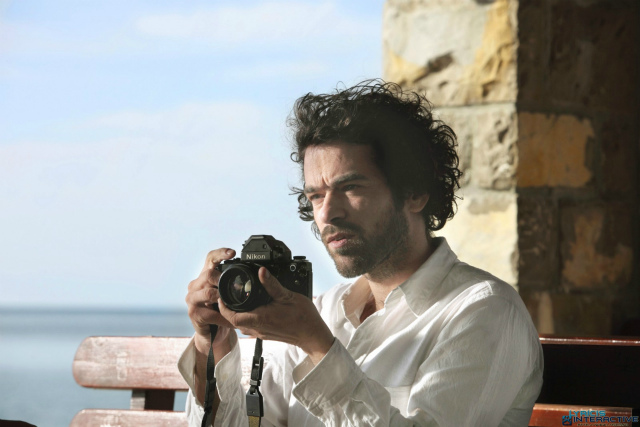Showing posts with label catherine deneuve. Show all posts
Showing posts with label catherine deneuve. Show all posts
16 August 2016
8 February 2014
The Umbrellas Of Cherbourg 50th Anniversary Blu-ray Review

Genre:
Drama, Musical, Romance
Distributor:
StudioCanal UK
BD Release Date:
10th February 2014 (UK)
Rating:
15
Director:
Jacques Demy
Cast:
Catherine Deneuve, Nino Castelnuovo, Anne Vernon
Buy:Umbrellas Of Cherbourg (50th Anniversary Edition) [Blu-ray] [1964]
Being the first French New Wave film (and possibly, though I could be mistaken, the first non-English language film) I watched, Jacques Demy’s The Umbrellas of Cherbourg will forever hold a special place in my heart. Back then, the New Wave was just a name and its significance I knew nothing about. And the film, though I found it to be rather enchanting and thoroughly entertaining, was just another film. But seeing the film again now, and in a wonderfully restored edition, I can finally fully appreciate it as the masterpiece it so clearly is.
What Demy’s film does so well is bridge the gap between those New Wave filmmakers he was more associated with, the Left Bank (Agnès Varda, Alain Resnais, Chris Marker), who became filmmakers in a more traditional way, and those of the Cahiers du Cinéma ilk (François Truffaut, Jean-Luc Godard, et al), who began as film critics. Demy achieves this, much in the same way Godard did in films such as Une femme est une femme, through the way he pays homage to the Hollywood musicals he was inspired by while at the same time deconstructing and parodying them in such a way that he simultaneously reinvents the musical.
And what a magnificent musical it is. The Umbrellas of Cherbourg ups the ante on that tired old Hollywood tradition of characters bursting into song by having all the dialogue sung by its cast in a recitative style normally found in the world of the operetta. This gives the film a level of artifice that is further increased by the addition of the most splendidly coloured buildings imaginable. But far from making the film too artificial and far removed from reality, this artifice emphasises the need of escapism from the ordinariness of everyday life. This is especially true when you get to the nitty-gritty of the films story which is grounded in a recognisable world where war, death, teenage pregnancy, prostitution, and debt are very much a part of reality.
The films story is deceptively simple. In the first part, the departure, we are introduced to Geneviève (Catherine Deneuve), who works with her widowed mother in a chic but debt ridden umbrella shop, and Guy (Nino Castelnuovo), a mechanic who lives with his bedridden godmother. They are in love and share a passionate night together before Guy leaves for two-year military service in Algeria. The second part, absence, concentrates on how a now pregnant Geneviève copes with Guy’s departure and the pressure she faces from a mother who wants to marry her off to a rich suitor (played by Marc Michel who also appeared in Demy’s first film Lola, which, along with Umbrellas and the later Les Demoiselles de Rochefort, forms a loose trilogy). The third part, the return, sees Guy return from his military service and focuses on how he copes with the discovery that Geneviève is now married.
Now this scenario may sound familiar enough when you compare Umbrellas structure with the conventional Hollywood romance, musical or otherwise, but it is the ending that makes the film special. Convention would dictate that the ending would see Geneviève and Guy inevitably end up together again, no matter how implausible that may seem. What Demy does instead, whether it is through coincidence and chance, those two staple themes of his oeuvre, or fate and destiny, is make sure that the couple are no longer together. He does not cop out and give the audience that happy ending they are all expecting but instead has the couple meet in a chance encounter at Guy’s gas station five years down the line. We quickly learn that both of them have moved on and that both are happy with their current situation. This gives the film a more moving finale. It is closer to the realities of life than anything that is thrown up in a conventional musical. Ultimately, we are left in agreement with Geneviève’s mother when she says: “Time heals many things.”
★★★★½
Shane James
4 October 2011
Subscribe to:
Comments (Atom)








